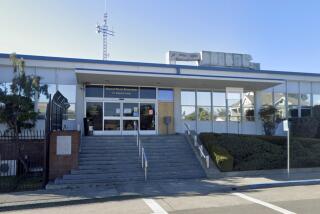Reassuring a Troubled Citizenry : Welcome involvement by U.S. attorney general in police brutality issue
- Share via
A broad, federal civil rights investigation of police brutality complaints is exactly what Los Angeles and other cities need in the wake of the horrific videotaped beating of a motorist suspected of speeding. The unprecedented national inquiry ordered by U.S. Atty. Gen. Dick Thornburgh Thursday is necessary to help determine if, as Los Angeles Police Chief Daryl Gates insists, this action by a few brutal cops is an aberration--or a symptom of a systemic institutional problem.
The federal review comes on the heels of the FBI’s announced high-priority probe of the March 3 beating. Traffic-violation suspect Rodney King was clubbed and kicked by three officers while a dozen, including a sergeant who was supposed to keep things from getting out of control, watched without interceding.
Thornburgh’s order is designed to effect a comprehensive review of all federal police brutality complaints filed within the past six years; an average of 2,500 are filed annually. The scrutiny will cover 15,000 federal complaints, including those that have been dismissed.
That’s good, but locally an equally comprehensive investigation of complaints filed against the LAPD must be undertaken by the Los Angeles Police Commission as part of its probe of the savage beating of King.
At the Police Commission’s first public hearing Thursday on the shocking beating, hundreds of elected officials, civic leaders and ordinary citizens expressed their fury at the beating, which was captured on video by an amateur cameraman and televised repeatedly.
The commission does not have full leeway in its power over the department and the police chief, of course, but its members, appointed by the mayor, are charged with overall oversight of the Police Department. It is vital that they do their job expeditiously, fairly and professionally.
Police abuse of force in the course of an arrest is not limited to Los Angeles, as Thornburgh’s order rightly suggests. That’s one reason why the attorney general also ordered the Justice Department’s research division to examine the effectiveness of police training and procedures designed to deter misconduct. How well are they working?
The attorney general’s attention is welcome because it goes well beyond business as usual in police brutality cases, which, in the absence of videotape, are typically difficult to prove. Thornburgh’s order should help reassure black Americans who learned during the civil rights movement to depend on the federal government for protection.
The Thornburgh investigation is warranted and welcome. But can it restore public confidence in the leadership of the LAPD in the wake of a police beating watched by the world?
That’s the sad--and hard--question.
More to Read
Sign up for Essential California
The most important California stories and recommendations in your inbox every morning.
You may occasionally receive promotional content from the Los Angeles Times.













